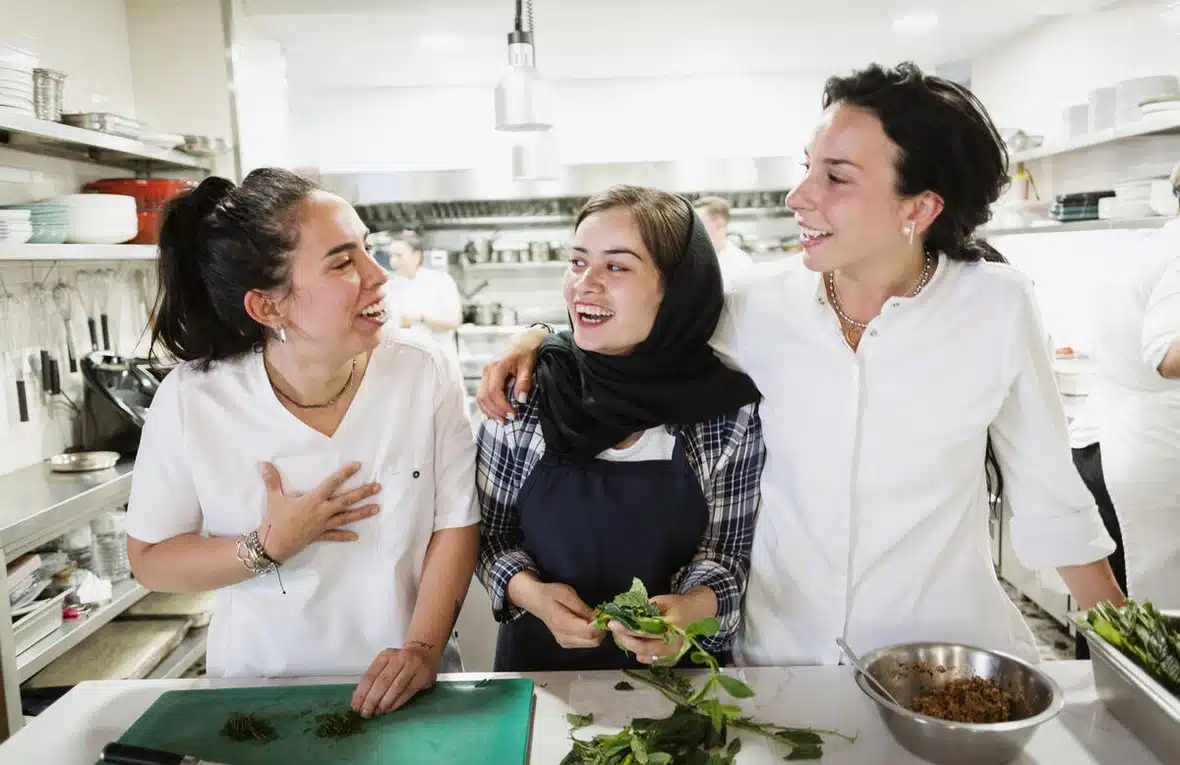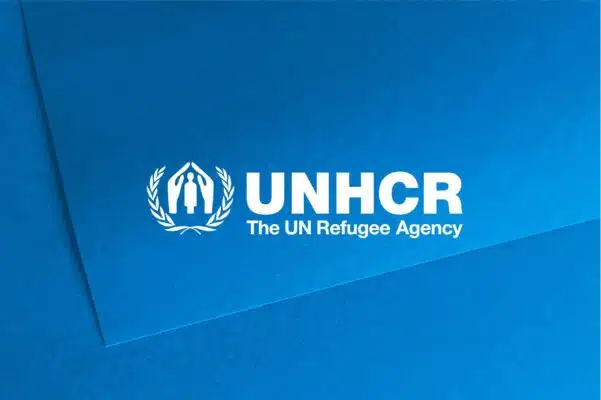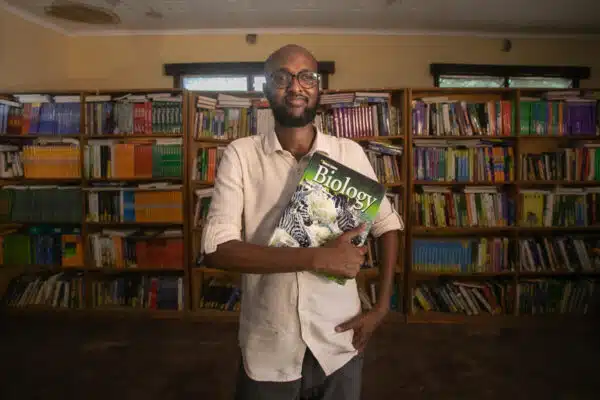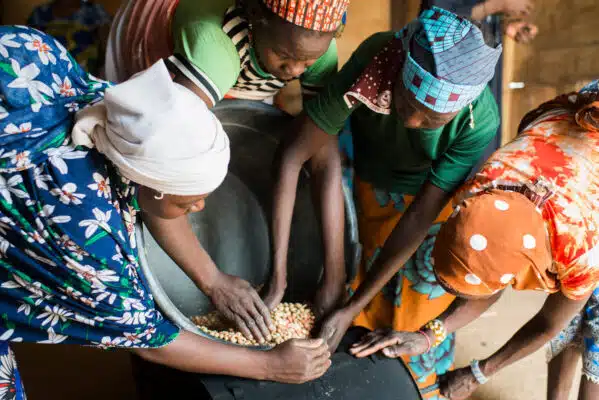
Roya Saifi (centre), an Afghan refugee, cooks with chefs Eleni Saradi (right) and Ilectra Rigkou (left) in the Lost Athens restaurant, Greece. © UNHCR/Achilleas Zavallis
This is a summary of what was said by UNHCR’s Arafat Jamal, Coordinator for the 2023 Global Refugee Forum – to whom quoted text may be attributed – at today’s press briefing at the Palais des Nations in Geneva
GENEVA – At the end of a devastating year marked by new, resurgent and unending refugee situations, it can feel like we are on a precipice. Humanitarian needs are outstripping resources, and for 114 million forcibly displaced and stateless people, including 36 million refugees, conflict is tearing lives apart. It is also taxing the communities that have so generously hosted these people.
Yet there is hope, and a promise of action. Next week, Geneva hosts the world’s largest gathering on refugee issues. We will meet in a spirit of solidarity, determined to mobilize political will to relieve the stress on hosts and refugees and seek lasting solutions. Act today and we can transform lives; delay, and the consequences will be all too obvious.
At the heart of the second Global Refugee Forum, from December 13-15, are pledges. States and civil society will announce transformative commitments in areas like education, labour market access, peacebuilding, climate change mitigation and resettlement. There will also be strong pledges around specific situations, including Afghans, Horn of Africa refugees, Rohingya, Central Americans and Central Africans.
The pledging is propelled by the diverse groups. Taking a whole-of-society approach, they will bring energy and weight to the event.
UNHCR, the UN Refugee Agency, and the Government of Switzerland expect to host at least seven Heads of State, Vice-Presidents and Heads of Government; three Deputy Prime Ministers; 30 Ministers of Foreign Affairs; and 95-line Ministers and Deputies. The Forum will be co-convened by Colombia, France, Japan, Jordan and Uganda.
Over 300 refugee delegates – about 10 per cent of attendees – will participate; a meaningful and overdue input. The highest levels of sport and business will be present, pledging alongside charitable foundations, financial institutions, UN agencies, humanitarian and development organisations, local authorities, NGOs, faith groups, academics and individual citizens.
The Global Compact on Refugees, from which the Forum emerged, was ratified in 2018, with the first Forum held a year later. The Forum has since garnered over 1,700 pledges and initiatives. The world is a different place now and needs are increasing, but the Compact’s core objectives remain crucial.
First, host communities need help. Three-quarters of refugees live in low or middle-income countries, which have opened borders and shared modest resources; they have provided a global public good. They now need more support.
Second, refugees want self-reliance. A productive refugee is a contributor, rather than a burden, to their hosts. Many hosts have lifted restrictions and expanded services to include refugees. Now others need to build on that with investment, infrastructure and jobs.
We need more resettlement and complementary pathways. Wealthier nations can create education and labour mobility schemes and enable family reunification.
A fourth element involves creating conditions so that refugees can return home in safety and dignity. This is often forgotten. And we hope with the strengthened focus on building peace at the Forum next week, the seeds for solutions can be sown.
At the first GRF, the international community recognized there are no humanitarian solutions to political problems, and we saw support from development actors. Now, there is a growing recognition that we must pay more attention to root causes.
I have worked on the frontlines of humanitarian emergencies, in seemingly intractable displacement situations. The accumulation of human misery can be overwhelming. I take heart from the times when we can provide lifesaving assistance, and I draw hope when we work with partners towards real solutions even in imperfect circumstances.
With focus, and ‘constructive impatience’, we can mobilize allies towards hopeful, substantive commitments and actions that counter complacency, and stabilize and resolve refugee situations. The Global Refugee Forum provides us with a platform to do just that. It is a moment for unity and action; a chance to engage in modern multilateralism, and make things right.
For more information on this topic, please contact:
- In Geneva, Matthew Saltmarsh, saltmars@unhcr.org, +41 79 967 99 36
- In Geneva, Mel Paramasivan, paramasi@unhcr.org, +41 79 526 59 48





